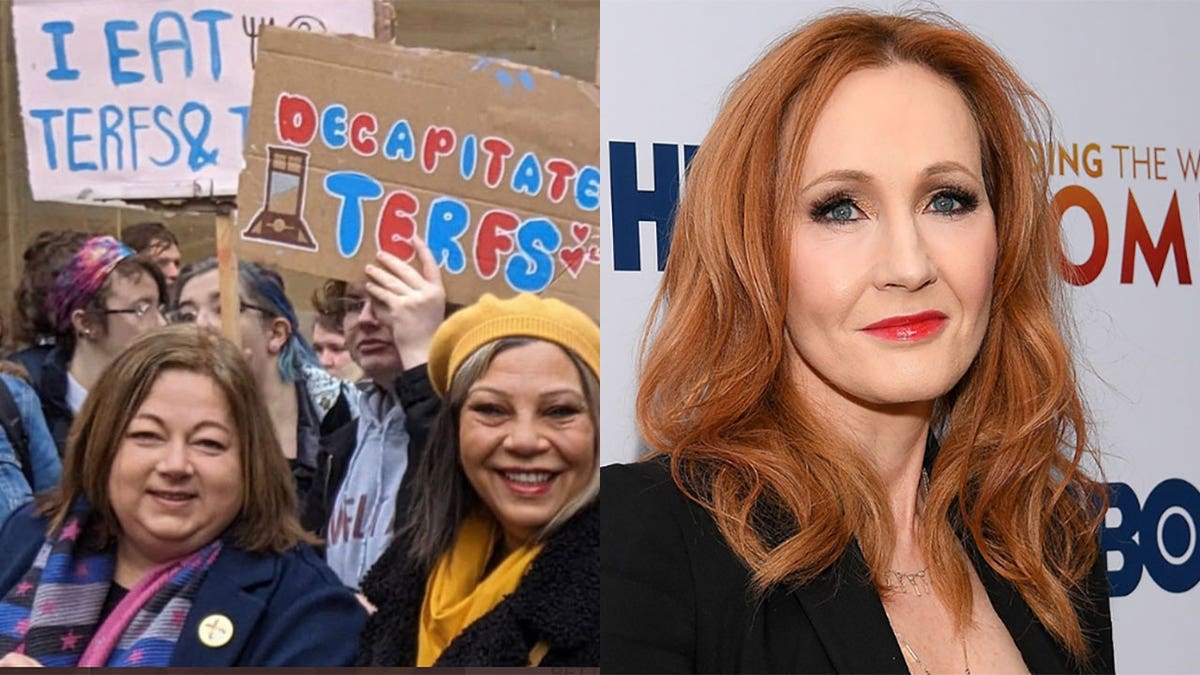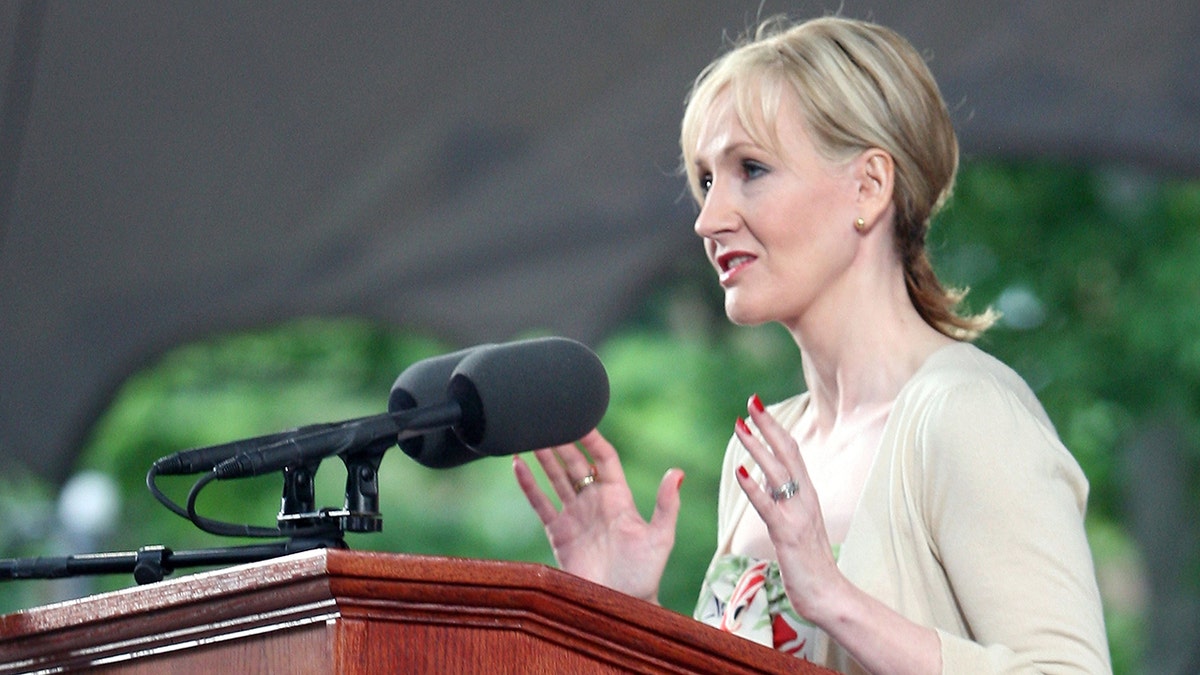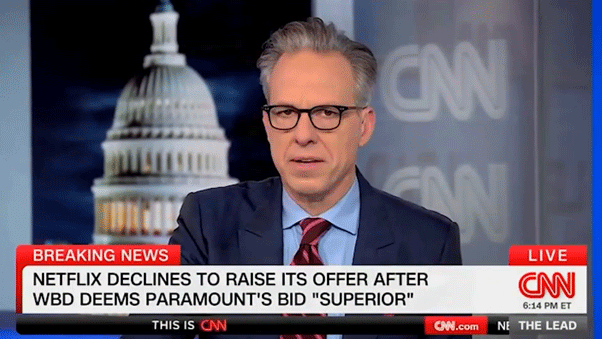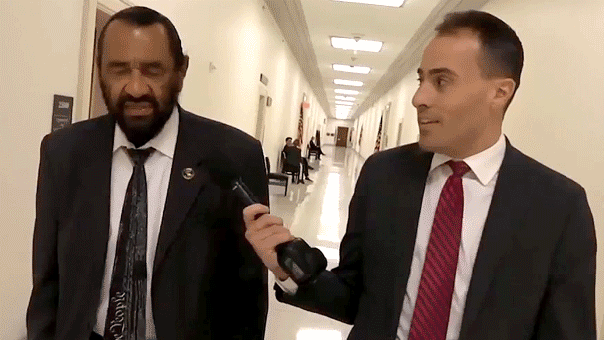J. K. Rowling speaks out about death threats over transgender comments
'Media Buzz' host Howard Kurtz discusses the controversy over the Harry Potter author's remarks about transgender people on 'The Story.'
"Harry Potter" author J.K. Rowling insisted that she "never set out to upset anybody" while ruminating on past threats from transgender activists and religious radicals on a new podcast.
During the first two installments of "The Witch Trials of J.K. Rowling," Megan Phelps-Roper, a Westboro Baptist Church escapee and political activist, sat down with Rowling to discuss the acclaimed author's tumultuous public life and her legacy.
Early in the first chapter of the podcast from "The Free Press," Phelps-Roper questioned how Rowling became the subject of intense and vocal backlash from both left-leaning and right-leaning figures.
"What is it about this woman and her work that has captured the ire of very different groups of people across time?" Phelps-Roper wondered in a letter she sent to Rowling in Scotland.

Author J.K. Rowling commented on images of Members of Parliament standing front of a sign reading "Decapitate TERFs." (Twitter/Getty Images)
Rowling received the note and offered for Phelps-Roper to visit her home where she addressed the plethora of ridicule she endured since the first Potter book was released.
"I never set out to upset anybody," Rowling said during the podcast. "However, I was not uncomfortable with getting off my pedestal."
She also responded to online critics who claimed Rowling had ruined her legacy and could have been beloved forever had she not spoken out on transgender issues.
"I think you could not have misunderstood me more profoundly. I do not walk around my house thinking about my legacy," Rowling said.

"Harry Potter" author J.K. Rowling (pictured in March) said her new book had nothing to do with her real life after facing backlash for comments she made about gender identity. (Mike Marsland via Getty Images)
The final "Harry Potter" novel may have been released in 2007, but Rowling has remained a prominent, if not polarizing figure in the modern media landscape. Much of the controversy has stemmed from her Twitter activity.
Over the last several years, Rowling has repeatedly defended the concept of biological sex and expressed concern that legal and linguistic revisions could potentially erase the lived experiences of biological females. These comments have led some on the left to refer to her as a "trans, exclusionary radical feminist," or TERF.
But, as the podcast points out, Rowling had previously found herself in the thrall of contentious political discourse dating back to the 1990s, when she became the target of religious radicals who believed the "Harry Potter" books advocated for witchcraft and even the practice of Satanism.
The discourse cropped up at school board meetings nationwide, where concerned parents urged teachers and administrators to ban "Harry Potter" from classrooms and libraries. To this day, the book series remains one of the most banned book series in the world.
MARK HAMILL DEFENDS ‘LIKING’ JK ROWLING TWEET AFTER LIBERALS ERUPT: ‘TWITTER IS NO PLACE FOR NUANCE’

Author J.K. Rowling delivers an address at Harvard University's commencement ceremonies June 5, 2008, in Cambridge, Massachusetts. Rowling, who wrote the popular Harry Potter books, was the commencement speaker. (Robert Spencer/Getty Images)
In one particularly frightening instance, Rowling and her team were forced to evacuate a bookstore during a signing because an alleged far-right Christian fundamentalist called in a bomb threat.
Threading the needle between past threats from the far-right and current threats from the far-left, Rowling warned against the idea of "black and white thinking."
"There's a huge appeal – and I try to show this in the Potter books – to black-and-white thinking," the author said. "It's the easiest place to be and in many ways, it's the safest place to be."
She added that taking an "all-or-nothing position" on anything will help find an individual among comrades and a community. However, she said people should mistrust themselves when they feel certain about a particular subject or issue.
CLICK HERE TO GET THE FOX NEWS APP
"Many people mistake that rush of adrenaline for the voice of conscience. In my worldview, conscience speaks in a very small and inconvenient voice, and it's normally saying to you: 'Think again, look more deeply, consider this."











































